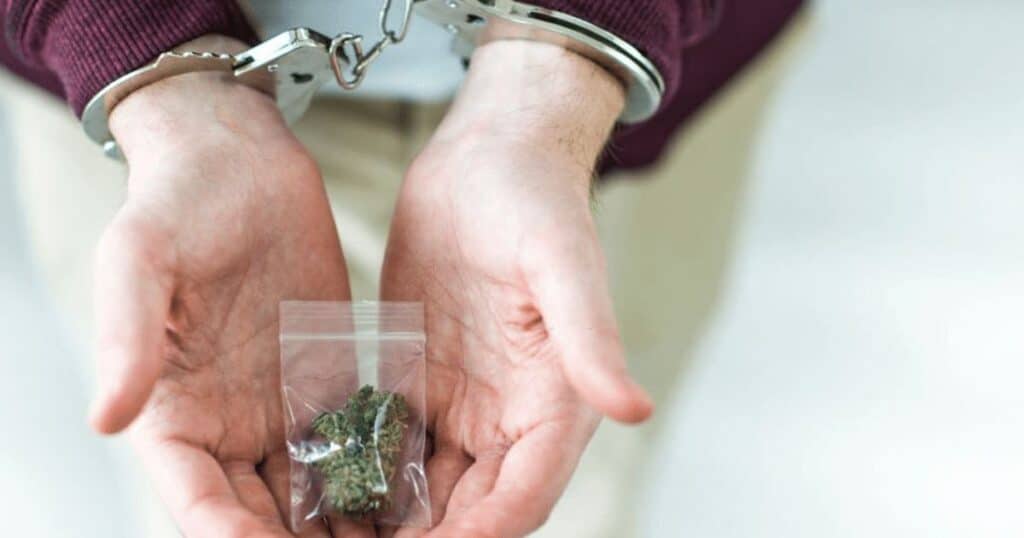President Joe Biden’s recent pardon of his son, Hunter Biden, on federal gun and tax charges has sparked widespread debate for criminal justice reform advocates and champions for marijuana policy reform. The pardon, which includes convictions related to Hunter lying about his drug use when purchasing a firearm in 2018, has raised questions about fairness in the U.S. justice system and the ongoing plight of thousands of nonviolent cannabis offenders still awaiting clemency.
The stark contrast between Hunter Biden’s pardon and President Biden’s inaction on cannabis reform we feel is hypocrisy. While many sympathize with a father’s desire to protect his son, and rightfully so, the situation also draws attention to the broader systemic inequities faced by those without valuable connections. This is not just about Hunter Biden—it is about fairness, justice, and Biden’s own campaign promises.
Hunter Biden’s Pardon
Last weekend, President Biden pardoned Hunter Biden for a variety of charges, including three tied to false statements about drug use while purchasing a gun in 2018. At the time, Hunter was using crack cocaine, a detail he acknowledged in his memoir, “Beautiful Things.” The President defended his decision by stating that his son was “being selectively, and unfairly, prosecuted,” emphasizing that charges brought solely over gun-buying forms are almost unheard of.
Critics across the political spectrum have called the charges against Hunter questionable. Even Republican lawmakers, such as Rep. Thomas Massie (R-KY), have argued that the charges seem trivial in the broader context of justice system priorities. Massie pointed out the hypocrisy of prosecuting Hunter for this while millions of responsible cannabis users face restrictions on firearm ownership due to outdated federal laws.
However, while sparing Hunter Biden may be understandable through the lens of parental loyalty, this act of pardon illuminates a glaring issue. Thousands of people are still incarcerated for nonviolent cannabis offenses, many having waited decades for the relief President Biden promised during his 2020 campaign. That promise, once outlined here, has since been replaced by a Dark Brandon meme. However, you can view the original content through the Wayback Machine here.
Biden’s Cannabis Pardons Fall Short
President Biden campaigned on the promise of addressing cannabis criminalization, pledging to help release individuals federally incarcerated for marijuana offenses. To date, the actions he has taken do little to fulfill this specific promise meaningfully.
Biden did issue pardons in October 2022 for thousands of individuals convicted of simple marijuana possession under federal law. However, these pardons applied only to select individuals and did not free a single person actively incarcerated. Left behind were thousands of nonviolent cannabis offenders serving time for violations that many view as archaic and racially disproportionate. Additionally, Biden announced plans to reclassify cannabis under the Controlled Substances Act, a process that is currently underway.
Further amplifying frustrations is the symbolism of Biden’s cannabis “reform.” Advocates argue that the action was more performative than substantive, allowing Biden to tout progress without digging deeper into systemic injustices. Clemency advocates were hoping for more robust changes—such as granting relief to those still imprisoned or ending federal policies that disproportionately harm communities of color.
Adding insult to injury is the Biden administration’s inconsistency in treating marijuana as a modern legal issue. Reports surfaced in 2021 that “dozens of young White House staffers” were suspended or fired for past marijuana use, even as marijuana becomes increasingly legalized across the United States. This occurred just weeks after federal guidelines recommended leniency over cannabis-related employment screenings. The stark double standard between internal administration policies and promises made to the American people is difficult to ignore.
Hunter Biden’s Pardon and America’s Systemic Inequities
The criticism surrounding Hunter Biden’s pardon stems less from the act itself and more from what it represents—a justice system that undeniably favors the privileged and well-connected. For many cannabis prisoners—often disproportionately people of color—the gaps in justice have devastating, lifelong effects.
Weldon Angelos, a formerly incarcerated cannabis offender who was pardoned by President Trump in 2020, put the issue bluntly, telling Marijuana Moment, “The pardon of Hunter Biden highlights a glaring hypocrisy in our justice system.” He added that Biden’s failure to prioritize broader cannabis clemency “is disheartening,” pointing out that while the President has pardoned his son, “so many others remain trapped in a system that refuses to treat them equally.”
Angelos even noted the uncomfortable reality that Biden has “pardoned more turkeys than people locked up for marijuana offenses,” just highlights the frustration of advocates who see Hunter “skip the line” while others like Edwin Rubis, who has served 27 years of a 40-year sentence for a nonviolent cannabis crime wait in prison cells with no relief in sight.
The Need for Comprehensive Clemency Reform
There are thousands of nonviolent cannabis offenders still incarcerated in the United States, facing life-altering consequences for acts that are now legal in many states. These individuals remain caught in the crossfire of a justice system still dealing with outdated drug policies.
Cannabis Advocates cannot ignore the painful irony of Hunter Biden’s pardon. Acknowledging the personal nature of the President’s actions—most parents would move mountains for their children—but that cannot justify ignoring systemic injustices. Granting clemency to thousands of marijuana prisoners would not only redeem Biden’s campaign promises but also serve as a critical step toward building an equitable justice system.
Biden Still Has Time to Act for Non-Violent Cannabis Pardons
While Biden may see Hunter’s pardon as a justified act of grace, the broader public sees it as a missed opportunity to extend mercy to others in similar, if not harsher, situations.
Nonetheless, there is still time for Biden to act. His presidency’s expiration does not close the window of opportunity to free cannabis prisoners and rectify a significant failure of American justice. Clemency, after all, should reflect fairness and equality—not privilege. We should note that the White House Press Secretary recently told reporters that Biden will issue more pardons before leaving office, giving hope to free thousands of non-violent cannabis offenders.
Hunter Biden’s pardon exposes an inconvenient truth about the American justice system—justice often bends to the connected and powerful. President Biden’s inaction on cannabis clemency adds insult to injury for those still serving time, particularly as his son skips the hardship countless others endure.
While it’s difficult to fault a father protecting his child, fairness requires balance. If Biden’s administration hopes to reflect its campaign promise of elevating justice, there’s no better time to start extending mercy to others in need.
The clock is ticking, Mr. President—thousands are counting on you to act.
















